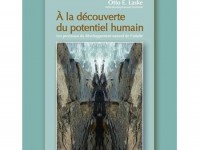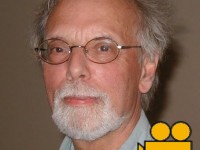This article of 2000 deepens Argyris’ notion of theory-in-use by recourse to empirical findings of the developmental sciences. It defines "consulting" based on this deeper notion. The article teaches a lesson still not learned in consulting: that theory-in-use has to do with levels of mental growth, both cognitively and social-emotionally, cutting through all "competence models". Consulting is redefined as the interactive design of interventions that take the level of mental growth of organization members and of their culture into account, equally in start-ups. Theory-in-use itself [what people actually do in organizations] is seen as comprising both a structural [social-emotional] aspect, referred to as individuals’ level of evolving self, and a procedural [cognitive] aspect, represented by individuals’ level of complexity handling. Their integration and unity demystifies "consciousness" as well as "leadership". In the process, the Developmental Structure/Process Tool (DSPT) – since 2005 referred to as CDF, Constructive Developmental Framework -- is introduced as an instrument of evidence-based consulting and coaching. CPJ #2, 2000. Read More...
Category: Coaching
An Integrated Model of Developmental Coaching
This article, originally published in 1999 but still very timely today, introduces a way of deepening cognitive-behavioral, psycho-dynamic, and other behavioral approaches to coaching and HR resources management. It proposes an epistemological model that focuses on adults' frame of reference (world view), the true determinant of human behavior, which has been practiced and taught internationally at the Interdevelopmental Institute (IDM) since 2000. The approach focuses on adults speech behavior as a dimension revealing their developmental profile both social-emotionally (with regard to meaning making) and cognitively (with regard to sense making or *thinking*). The paradigm and the model are developmental in a twofold sense, that of “ontic” development occurring in human organisms as the mature over their lifetime (“nature”), and of “agentic” development brought about by humans (“nurture”). An introduction to the model is presented, followed by the topology of the mental space of coaching, a summary, and suggested topics for future research. Source: Consulting Psychology Journal 51.3, pp. 139-159 CPJ #1, 1999 Read More...
Mentoring a Behavioral Coach to Think Developmentally
In this dialog between two coaches, one of them behavioral, the other developmental, I convey the mindset it takes to think about coaching clients in an adult-developmental manner. My goal is to demonstrate the differences in thinking and listening, not just "methodology", that separate the two approaches to coaching. From my experience, while behavioral coaching has its place at lower levels of organizational levels of responsibility, it is increasingly ineffective the higher one climbs up the organizational ladder. This does not preclude, however, that the two forms of coaching could not be fruitfully combined once the coach is expert in handling developmental tools. Keywords: Constructive Developmental Framework, dialectical thinking, handling complexity, developmental listening, social-emotional coaching, cognitive coaching. 2007_Laske_Otto_Mentoring_a_Beh._Coach(1) Read More...
What is CDF: An Introduction for Beginners
This article introduces to the Constructive Developmental Framework (CDF), addressing those readers who want to learn to use the methodology. CDF is seen as a comprehensive framework for consulting and coaching, much like NLP, but on a higher level of consciousness. Its main intellectual strength lies in establishing a methodology for the deconstruction, through dialog, of less developed thinking and meaning making, for the sake of client benefit. Viewed more broadly, CDF is a framework for “coaching for society” that can lift individuals’ and teams’ developmental level. What is CDF -- An Introduction for Beginners Read More...
Effective Team Coaching: Juggling Personalities and Roles
Teams are usually viewed as "flat", disregarding that each of their members is active on a specific level of accountability associated with a specific universe of discourse. What team members are thinking and saying is thus not determined not only by their developmental size of person, but also by the size of their organizational role, and their understanding of the relationship between the two. A team coach or team leader who is disregarding this fact is going to be less effective that s(he) could be. In this webinar, Otto Laske outlines a typology of teams in which both team members' size of person and size of role receive due attention. Read More...
Buchbesprechung von Otto Laske’s “Dialectical Thinking for Integral Leaders: A Primer”
Buchbesprechung Otto Laske, Dialectical Thinking For Integral Leaders: A Primer Integral Publishers, ISBN 978-0-9904419-9-1, 2015 (June) Zusammenfassung In dieser Buchbesprechung hebt Michael Habecker die wesentlichen Gedanken eines jeden Kapitels des obigen Buches heraus und schafft dadurch eine klare Zusammenfassung der Intentionen von Otto Laske. Michael Habecker Das neue Buch von Otto Laske, als eine Zusammenfassung seiner Arbeit zum dialektischen Denken, leistet Wesentliches zur Theorie und Praxis menschlichen Denkens als eines unserer wichtigsten Instrumente und Möglichkeiten zum Erkennen und Verstehen von uns selbst, anderen Menschen und der Welt als Ganzes. Es richtet sich im Titel an „integrale“ Führungspersonen und versteht sich in diesem Sinne als ein Angebot an diesem Personenkreis und an die integrale Theorie und Praxis als Ganzes. Dieser Primer fasst die Inhalte des Buches Measuring Hidden Dimensions: The Art and Science of Fully Engaging Adults Band 2 von Otto Laske zusammen, von dem es noch keine deutschsprachige Übersetzung gibt. Übersetzt ist jedoch der Band 1, Potenziale in Menschen erkennen, wecken und messen: Handbuch der entwicklungsorientierten Beratung, in dem es um die sozial emotionale Entwicklung des Menschen geht, welche der Autor klar von der Entwicklung dialektischen Denkens, als dem Gipfel erwachsenen kognitiven Denkens unterscheidet, um die es in dem Primer... Read More...

